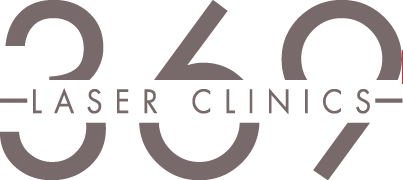“Every woman deserves smooth hairless facial skin everyday”
Now with the continued advances of laser technology, its possible to combat medical conditions of facial hair growth.
What is PCOS?
Polycystic Ovary Syndrome (PCOS) is a common hormonal disorder that affects people with ovaries, often during their reproductive years. Due to its prevalence and varied symptoms, several myths and misconceptions surround PCOS.
Let’s address some of these myths:
Myth: PCOS is a rare condition.
Reality: PCOS is actually a common condition, affecting approximately 5-10% of women of reproductive age. It is one of the most common endocrine disorders among women.
Myth: All women with PCOS have cysts on their ovaries.
Reality: While the term “polycystic” implies the presence of cysts, not all women with PCOS have ovarian cysts. Diagnosis is typically based on a combination of symptoms, hormonal imbalances, and ultrasound findings.
Myth: PCOS only affects the ovaries.
Reality: PCOS is a systemic disorder that involves hormonal imbalances, and it can affect various parts of the body. It is associated with insulin resistance, metabolic issues, and an increased risk of conditions such as type 2 diabetes and cardiovascular disease.
Myth: PCOS only affects overweight or obese women.
Reality: While weight gain and obesity can exacerbate PCOS symptoms, women of any weight can develop PCOS. Thin women can also have PCOS, and the condition may go undiagnosed in them because the symptoms might be less apparent.
Myth: PCOS is only a fertility issue.
Reality: PCOS is associated with a range of symptoms beyond fertility issues, including irregular periods, acne, hirsutism (excessive hair growth), and metabolic concerns such as insulin resistance. Managing PCOS involves addressing these diverse aspects of the condition.
Myth: All women with PCOS will struggle with infertility.
Reality: While PCOS can impact fertility for some women, not all women with PCOS experience fertility problems. Many women with PCOS can conceive naturally or with the help of medical interventions.
Myth: Birth control pills are the only treatment for PCOS.
Reality: While birth control pills are commonly prescribed to regulate menstrual cycles and manage symptoms, treatment approaches can vary based on individual symptoms and goals. Lifestyle changes, such as diet and exercise, may also play a significant role.
Myth: You can’t get rid of facial hair with PCOS
If you find yourself constantly shaving or finding methods to get rid of facial hair without long-term results, you could look into laser hair removal treatments and find out if you are suitable. Unlike other hair removal methods, laser hair removal treatments damages the hair follicle at the root. The can treat all skin types, Many PCOS require ongoing treatments to help maintain hair growth this means that a minimum of 8 to 12 sessions will be recommended.
If you’re interested in learning more about our treatments available for PCOS symptoms, and get the accurate information you can book a consultation today to speak to one of our specialists. Each individual may experience PCOS differently, and a personalized approach to care is crucial.
View PCOS laser hair removal videos
View our specialist PCOS facial laser hair removal treatment specially designed for women (scroll to the PCOS treatment section)



Comments are closed.